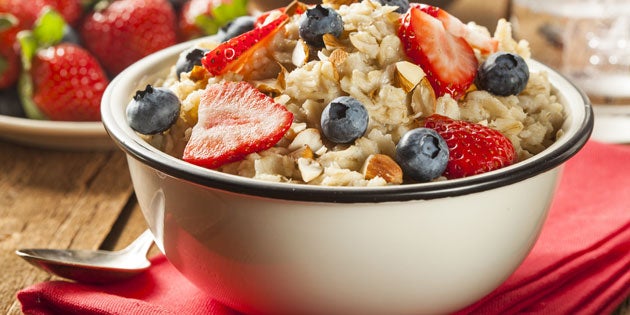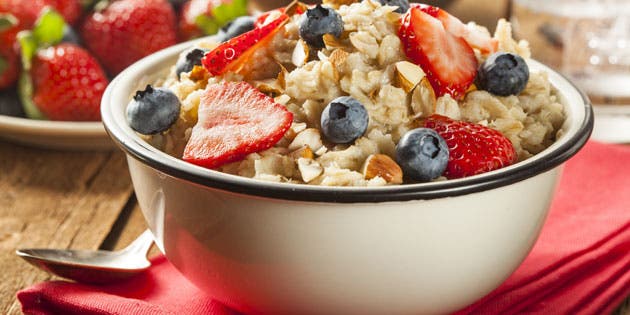Time Your Carbs Right


Carbs consumption is, perhaps, the most confusing aspect of diet for active women. Carbs help fuel muscle tissue growth and recovery, boost energy and satisfy hunger and cravings. But taking in too many of them at the wrong time encourages body-fat storage. Knowing when and which type of carbs you should eat throughout the day will give you the fuel you need to achieve your goals.
Fast-Digesting Carbs
Examples: Sugar, honey, molasses, dextrose, maltodextrin
Advantages: Before workouts they supply energy; after workouts they restock muscle glycogen.
Disadvantages: At other times of day these carbs encourage body-fat storage by increasing insulin release.
Timing: Take in about 25 grams of fast carbs before and/or after intense training. Avoid these carbs at other times.
Slow-Digesting Carbs
Examples: Yams, oatmeal, buckwheat pancakes, brown rice
Advantages: These carbs provide slow-burning energy without spiking insulin nearly as much as fast carbs.
Disadvantages:
Around the time of your workouts, these carbs provide less immediate energy and slow the absorption of protein.
Timing: Take in these carbs at whole-food meals early in the day; reduce intake in the evening when they’ll more likely be moved into fat storage rather than burned as energy.
Fibrous Carbs
Examples: Vegetables, many fruits, beans and Lentils
Advantages: High in fiber, foods in this group have much less impact on insulin release. They support health and deliver crucial nutrients.
Disadvantages: This group slows protein absorption, beneficial at many times of the day, but avoid them about an hour before workouts and for about 30 minutes afterward.
Timing: Eat several servings a day. Emphasize vegetables over other carb sources later in the day to reduce insulin impact.